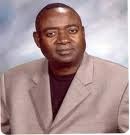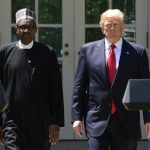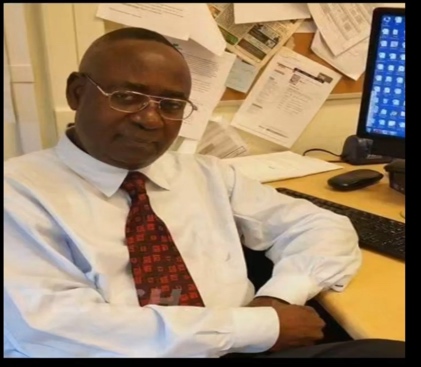by
Mr. Edmund Zar-Zar Bargblor
The debate about Liberians with dual citizenship status and their participation within the Liberian Government, continues to resurface within Liberia and within the diaspora. While some countries are taking advantage of dual citizenship, lawmakers in Liberia are failing to take advantage of the many constructive opportunities which dual citizenship entails. Bella Consultants emphasized: “dual citizenship is becoming more common in today’s increasingly interconnected economy. Countries such as India, the Philippines and Mexico are now seeking the advantages of dual citizenship by liberalizing their citizenship laws. These countries have realized that dual citizenship participation, has the advantages of broadening a country’s economic base, fostering trade and investment between the dual citizen’s two respective countries”. The brain drains problem which Liberia is encountering, could be solved by encouraging fellow countrymen/women who enjoyed the citizenships of other countries to return to Liberia and contribute their skills /professionalism to nation building.

According to Augustine Oyowe (the author of brain drains), ” when a highly-qualified professional chooses to leave his own country for another, he does so for one or several legitimate political or economic reasons: peace and security for himself and his family, job satisfaction, better pay and conditions, a higher standard of living, etc.” Throughout history, countries and centers of academic excellence that offer these attractions have received the largest numbers of professional migrants and these have, in turn, made substantial contributions to the economic growth of their host countries.
The UN Economic Commission for Africa and the International Organization for Migration (IOM) estimated that 27,000 Africans left the continent for industrialized countries between 1960 and 1975. During the period 1975 to 1984, the figure rose to 40,000. It is estimated that since 1990 at least 20,000 people leave the continent annually.
In 2004, the UN reported that powerful factors in the brain drain contributed to Africa’s poor rates of economic growth over the past 30 years (worsened by structural adjustment measures which have resulted in dramatic falls in living standards) and political instability (disturbances in Nigeria and Zaire, civil war in Liberia, Sierra Leone and Somalia etc.). Thousands of qualified Liberian professionals have been forced unwillingly into exile in the 1980’s and 1990’s. The migration of highly qualified professionals from the country is an extremely complex problem that presents the present Liberian Government with a major dilemma. It is one thing to talk about constitutional issues; it is another to create the incentives that would encourage qualified Liberian professionals to return home.

Present conditions in Liberia demand that Liberians with the requisite skills and talents need to be identified and encouraged to return home, to help with the economic recovery process. The irony of the Liberian situation which the honorable law makers need to realize, the Liberian Government as we know it during the administrations of Tubman, Tolbert and Doe is not the same. Due to the absence of qualified and skilled Liberian professionals, the international community was forced to institute a Governance and Economic Management Assistance Program, GEMAP, over the years, to create transparent financial management and accountability. The establishment of GEMAP, seemingly, was to establish effective processes to control corruption, both within government ministries and public corporations (Gemap-Liberia.org).
Solidified by an agreement signed in 2005 between the transitional government and its international partners including the US Government, the European Union, the United Nations, the Economic Commission of West African States, the African Union, the World Bank, and the International Monetary Fund, GEMAP was created to assist the Government of Liberia to create and institutionalize effective financial and asset management policies and procedures, contain corruption, and improve overall economic governance ( Gemap-Liberia.org).

To foster economic development, current and future Liberian Governments are under pressure to seek out individual Liberians with the necessary skills, professionalism and integrity. And this process includes other Liberians with dual citizenship status. Most of Liberia’s best minds are in the Diaspora. Some of the individuals within the Diaspora had to take up naturalized citizenships of their host countries to be able to practice their professional crafts. If Liberia is to develop, she needs the experience and expertise of Liberians who have lived and worked in developed economies. Work ethics, such as people reporting to work on time and taking their responsibilities serious, are essential attributes Liberians on the ground need to see again and to put into practice.
Liberians in the Diaspora have the necessary academic and professional preparations, to help Liberia solve her problem of brain drains. The government of Liberia needs to encourage all its nationals to return home. Closing the doors on others, due to their dual citizenship status is not in the best interest of the socio-economic development of the nation. Other countries in Africa, Ghana for example, are increasingly engaged in strategies and programs to reverse the brain drain to retain skilled professionals at home. Perhaps, Liberia’s lawmakers need to understand and emulate the wisdom of Ghana, Nigeria and other countries within the sub-region and encourage dual citizenship participations at all levels of the Liberian Government.
The current list of countries in Africa that have some form of Dual Citizenship according to dualcitizenshipmalawi.blogspot.com are:
1. Angola
2. Benin
3. Burundi
4. Cote d’Ivoire (restrictions on holding office as president & vice-president of the republic; president and vice-president of parliament – speaker and deputy speaker of parliament).
5. Djibouti
6. Egypt (with permission)
7. Eritrea (with permission, has created an intermediary status)
8. Gabon
9. Gambia
10. Ghana (Dual Citizens may not hold a set of listed senior positions, includes dual citizenship for the involuntary African diaspora.)
11. Kenya
12. Lesotho
13. Morocco
14. Mozambique
15. Namibia
16. Nigeria
17. Rwanda
18. Sao tome & Principie
19. Sierra Leone
20. South Africa (with permission/application at Dept. of Home Affairs)
21. Togo
22. Tunisia
23. Uganda
B. Countries that have a bill being tabled in parliament:
1. Tanzania
2. Zambia
3. Zimbabwe
2. Zambia








